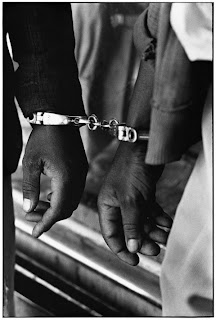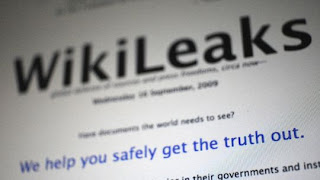"Go back to his books and rediscover the potency and the appeal – and, often, the joie d’esprit – of his writings: on cricket, on Muhammad Ali, on his own journey as an anti-Zionist Jew and, of course, on Bob Dylan."Anne Beech, Pluto Press
"The crowd reminds me that I only put myself
in other people’s shoes
because I couldn’t find my own
and the common locker was so near at hand.”
Mike Marqusee
Mike
Marqusee,
who died
in London last week aged just 61, was a man of immense talents and a beautiful writer
who combined a career and life of writing with a profound lifelong commitment
to political activism.
One of many things that I appreciated about Mike Marqusee was that he was a living example of the ways that popular culture and writing could be harnessed as a vehicle for radical political analysis and protest without becoming ideological dogma.
His work also reminded us of the essential importance of art and culture- past and present- to radical political struggles. In a piece in Red Pepper he once wrote:
"The art of the past, is a precious, irreplaceable resource, and one that can be a powerful stimulant in the struggle for that other world we insist is possible. Listening to the voices of the dead is a necessary aspect of ‘contending for the living’.....
Under capitalism, art is treated as a commodity, but there is something in art of any value that resists that status, breaks out of that dimension. There’s always a disconnection between its market value and its artistic value – whose very nature resists quantification. Each work of art has a claim of its own that cannot be measured in terms of another and thus cannot be reduced to exchange value. This was what William Blake had in mind when he declared: ‘Where any view of Money exists Art cannot be carried on, but War only"
Marqusee was a writer, a
radical journalist, poet, Marxist writer, commentator and political
activist. He wrote arguably the finest book on Bob Dylan Wicked Messenger: Bob Dylan and the 60s (2005),
in which he explored the political, cultural and historical significance and
legacy of Dylan’s 1960’s music.
His book
on Muhammad Ali Redemption
Song: Muhammad Ali and the Spirit of the Sixties is considered one of
the great sporting books of all time. In it Marqusee restores Ali as an exemplar and symbol of radical conviction, and explores the ways that popular culture can be simultaneously a vehicle of protest and a vehicle of incorporation.
His political memoir and family history In If I Am Not for Myself: Journey of an anti-Zionist Jew combined his own
family history, with political theory and analysis of religious texts, to
distinguish Jewishness from its co-option by the state of Israel.
Marqusee who described himself as
a 'deracintaed Marxist, American Jew" was
of Lithuanian-Jewish background and was born in the US, but had lived
and worked in the UK since 1971.
Marqusee combined writing and journalism with a lifelong commitment to political activism for left and progressive causes. He was a dedicated political campaigner and activist and for many years, he was the Press Officer for the Stop the War Coalition that organized the over a million people march in London against the US invasion of Iraq in 2003.
He wrote books
and articles on a remarkable and eclectic range of topics
as diverse as history, cricket, India, sport, leftist and labor
politics, poetry music and arts, popular culture, UK and world politics,
anti-Zionism and his own experiences with cancer. He wrote a regular
column for the Indian publication The Hindu, and was a
regular columnist for the left-wing magazine Red Pepper (his columns are here).
His last book the Price
of Experience: Writings on Living with Cancer was published in 2014 and
explores the politics of cancer and his own experience of cancer treatment
under the UK National Health Service. Marqusee
wrote about the connection and interplay between neoliberal and market
fundamentalism and the politics of cancer and the suffering experienced by
people living with cancer.
Marqusee was also a published poet. His last book of poetry Street Music included poems written between 2009-2012, including this one.
This morning’s surprise is how much I’ll miss rail travel.
The green fields looming up and falling behind,
the milky tea wobbling in a plastic cup,
the engine’s steady vibration.
This afternoon’s surprise is how many shades of red there are,
each one sitting in a room of its own, dense in meditation.
Each one a field of conflict, a medium of conciliation.
This evening’s surprise is not that the novel ends
in a desultory return to the working week –
loose ends trimmed and tucked out of sight –
but the ferocity of my recoil
at the author’s glib contrivance.
Midnight’s surprise is Lorca’s moon floating over Hackney
full-faced, round-eyed and speaking Spanish.
An obituary in the Guardian
is here and personal tributes from his colleagues and comrades on
the British left are here, here, here, here and here. The Red Pepper Magazine has published these tributes.
The American sports writer Dave Zirin has written this heartfelt tribute to Mike Marqusee.
























